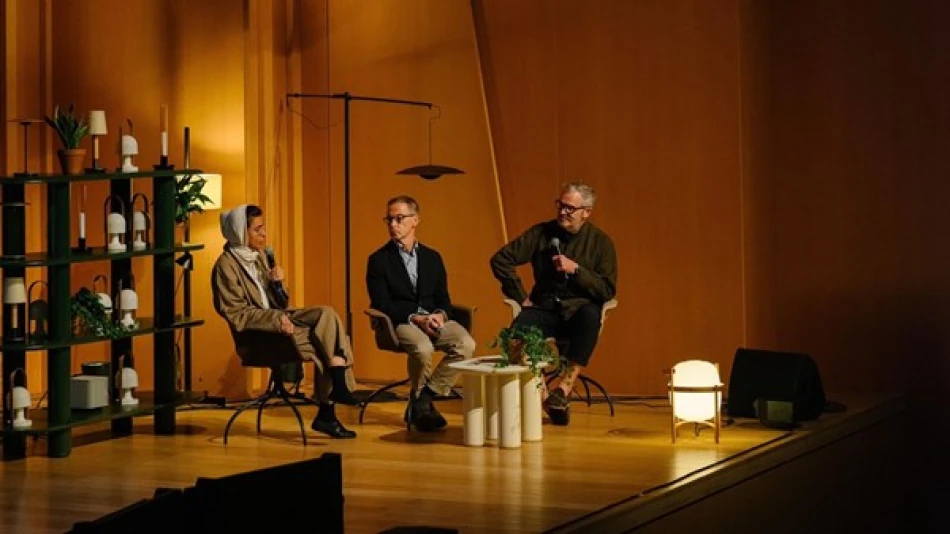
Noura Al Kaabi Affirms UAE's Commitment to Pluralism and Dialogue at 'Monokol for Life Quality' Conference
UAE Positions Itself as Global Champion of Religious Tolerance Through Strategic Cultural Diplomacy
The United Arab Emirates is leveraging high-profile international forums to showcase its model of interfaith dialogue and cultural pluralism as a strategic soft power tool. Speaking at the Monocle Quality of Life Conference in Barcelona, UAE Minister of State Noura Al Kaabi outlined how the nation's commitment to religious tolerance has become central to its diplomatic identity and economic development strategy.
The Abraham House: A Blueprint for Interfaith Coexistence
Al Kaabi highlighted the Abrahamic Family House in Abu Dhabi as a flagship example of the UAE's approach to religious harmony. This architectural complex, housing a mosque, church, and synagogue under one roof, represents more than symbolic gesture—it reflects a calculated strategy to position the UAE as a neutral meeting ground for global dialogue.
The initiative demonstrates how the UAE has transformed religious tolerance from a domestic necessity into an international brand. With over 200 nationalities residing in the country, this diversity has evolved from a demographic reality into a competitive advantage in attracting global talent and investment.
Cultural Heritage as Diplomatic Currency
The UAE's $50.4 million contribution to UNESCO's "Revive the Spirit of Mosul" initiative reveals a sophisticated understanding of cultural diplomacy. By funding the restoration of Iraq's historical sites, the Emirates positions itself as a guardian of shared Middle Eastern heritage while building influence in post-conflict reconstruction.
This approach mirrors successful soft power strategies employed by countries like Japan and South Korea, which have used cultural exports to enhance their global standing. However, the UAE's focus on interfaith dialogue addresses a particularly relevant global challenge in an era of rising religious tensions.
UN Security Council Resolution: From Vision to Policy
Al Kaabi's reference to the UAE's role in drafting UN Security Council Resolution 2686, which emphasizes international cooperation against religious intolerance, demonstrates how the country translates its domestic model into global policy frameworks. This legislative diplomacy approach allows smaller nations to punch above their weight in international affairs.
The resolution represents a practical application of the UAE's tolerance agenda, moving beyond ceremonial declarations to create binding international commitments. This strategy positions the Emirates as an indispensable mediator in regional conflicts where religious divisions play a central role.
Economic Implications of the Tolerance Strategy
The UAE's emphasis on pluralism serves clear economic objectives. By creating an environment where diverse communities can coexist, the country attracts international businesses seeking stable, multicultural hubs for their regional operations. This tolerance brand differentiates the UAE from regional competitors and supports its ambition to become a global business center.
The strategy also supports the country's tourism and cultural sectors, with interfaith dialogue initiatives creating unique attractions that appeal to international visitors and conference organizers, as evidenced by the UAE's selection for numerous global forums.
Challenges and Future Outlook
While the UAE's tolerance initiatives have gained international recognition, their long-term success will depend on maintaining this openness amid regional tensions and domestic pressures. The country's ability to balance its interfaith diplomacy with traditional regional alliances will test the sustainability of this approach.
As global polarization increases, the UAE's model of managed diversity could become increasingly valuable to international partners seeking neutral venues for sensitive negotiations. This positions the country to capitalize on growing demand for diplomatic mediation services in an fractured global landscape.
Most Viewed News

 Layla Al Mansoori
Layla Al Mansoori






